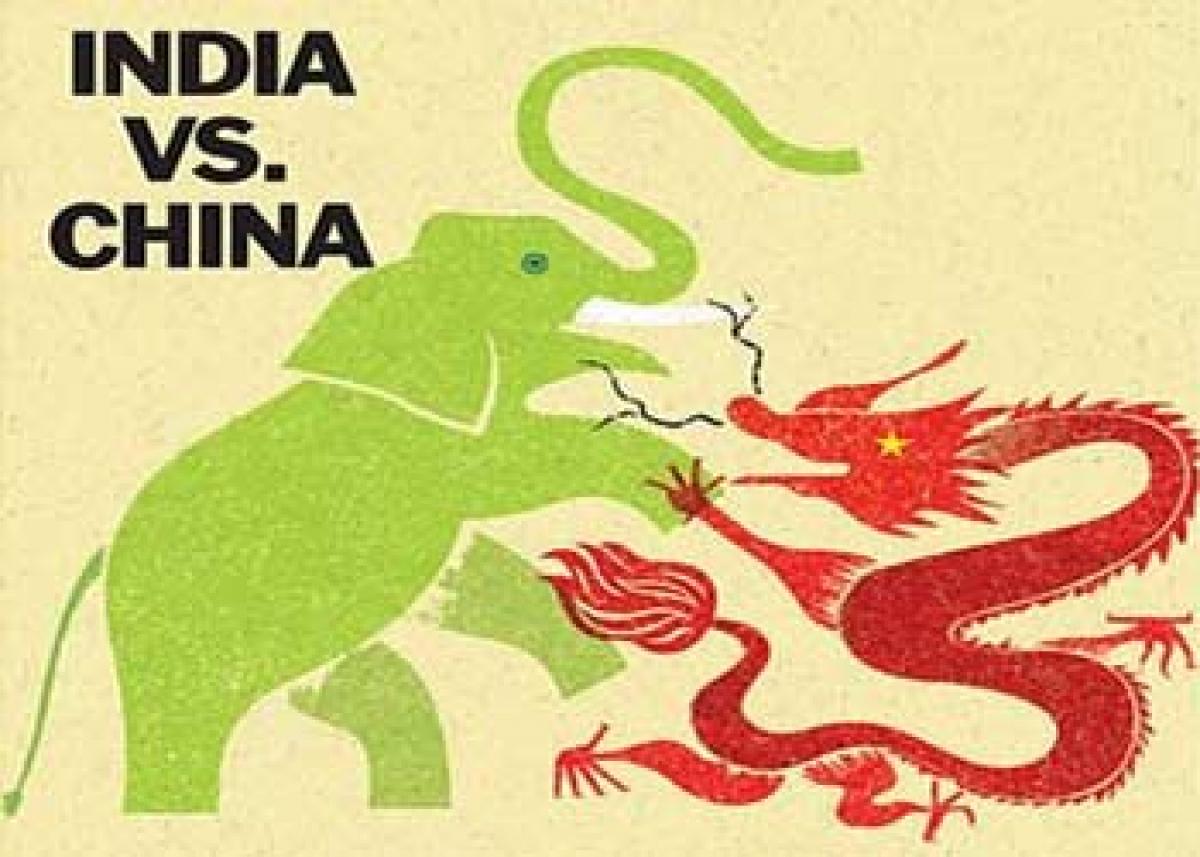Slowing dragon, rising elephant

Slowing dragon, rising elephant. Recent events in the Chinese economy and its impact on the world markets merit attention, with August 24 being termed \'Black Monday\' as markets tumbled first in China and then in countries elsewhere.
 Recent events in the Chinese economy and its impact on the world markets merit attention, with August 24 being termed 'Black Monday' as markets tumbled first in China and then in countries elsewhere. In China, the benchmark Shanghai Composite Index fell an astounding 8.49 percent in one day.
Recent events in the Chinese economy and its impact on the world markets merit attention, with August 24 being termed 'Black Monday' as markets tumbled first in China and then in countries elsewhere. In China, the benchmark Shanghai Composite Index fell an astounding 8.49 percent in one day.
The sentiment was echoed across world markets with benchmark indices tumbling. Russia was down 4.73 per cent, Japan was down 4.61 per cent, Germany was down 4.70 per cent and US Dow Jones industrial average went down 3.58 percent. India's Sensex slid a remarkable 5.94 percent, leading the government and RBI to immediately move into damage control mode.
The 'Black Monday' tumble raises fundamental questions about how reflective are stock markets in portraying real economies. Even in developed economies with greater transparency and accountability the answer is difficult to guess.
With investment as a percentage of GDP on the decline while consumption as a percentage of GDP on the rise, this marks an important shift in China's economy and this has a great bearing on the world economy in the future. China's ongoing structural transformation from an investment to a consumption-driven economy is likely to cause some real changes in the world economy.
Already, some of the effects are being witnessed. The global commodity price crash is most likely driven by a slowdown in demand for raw material in the Chinese economy. The most vulnerable economies are the exporting ones that trade in raw materials with China.
These include both economies that are closer home to China like Indonesia and Mongolia and far off commodity exporters like Australia and Brazil. The US and India are relatively in a better position as they do not export too much as a percentage of GDP to China (both lesser than 10 per cent).
The concern now for most policymakers is ensuring a stable slowdown for the Chinese economy. India's concerns at present are not so much with respect to the Chinese developments as they are with the developments in the United States.
This is because the Federal Reserve can raise interest rates in light of its bettering domestic economy that could lead to possible damage. However, as economists like Larry Summers have argued, it seems unlikely in the wake of recent Chinese developments.
Also, India is looking to leverage the opportunity for its economic growth. For economic growth, the pace of economic reforms in the coming years will be the deciding factor.
As RBI Governor Raghuram Rajan has said recently, "India is better placed compared to other countries with low current account deficit, and fiscal deficit discipline, moderate inflation, low short-term foreign currency liabilities, very sizeable base of forex reserves.”
In the months ahead, the Federal Reserve's actions could have a great bearing on emerging market economies like India. Much will depend on the how well India is geared up to meeting these challenges.
By Amit Kapoor















